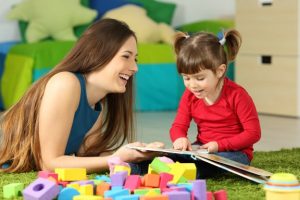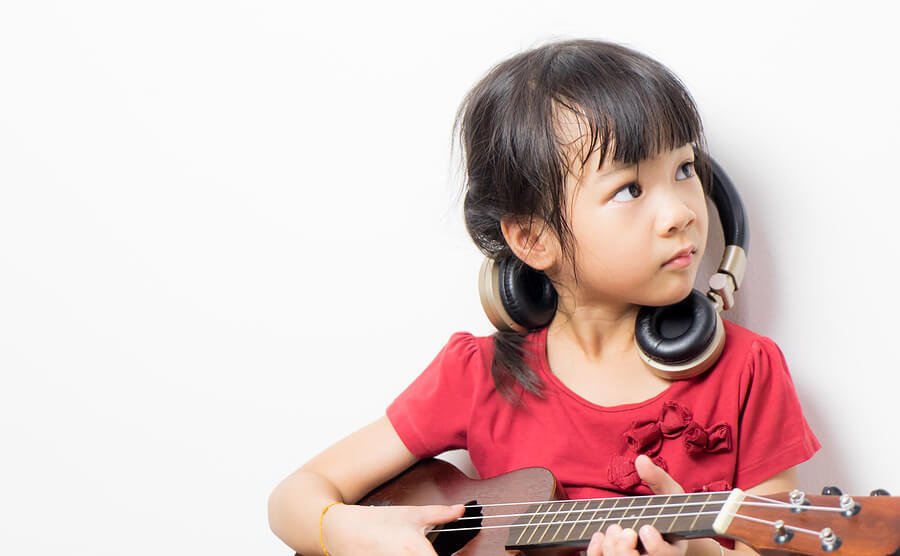What Is The Best Stage of Life for Learning?


Reviewed and approved by the psychologist María Alejandra Castro Arbeláez
Parents often wonder which is the best stage of life for learning motor activities, cognitive learning or emotional understanding in children. In this article, you’ll find everything you need to know about this topic.
When you see children in their daily activities and playing, you’ll see how fast they assimilate. They can mimic the information they constantly perceive through all their senses.
Of course, this topic isn’t new. In fact, it’s been widely studied by disciplines such as neuroscience. Children’s brain connections have been studied on numerous occasions, and researchers have reached amazing conclusions. We’ll share the results with you next.
With all this data, you can stimulate your child’s learning so they can reach their potential.
What is the best stage of life for learning?
To explain the best stage for learning, neuropediatric studies developed a concept called brain plasticity.
Through brain plasticity, they claim that children’s minds and senses work like a sponge. They soak up knowledge between the first few months and six years of life.
They absorb all the information they see around them. In addition, they do it very quickly and naturally.
During this time, children go through a sensitive period of learning. It’s a stage that you should definitely make the most of. At this time, kids are able to retain the greatest amount of knowledge.
This capacity covers areas such as musical and mathematical skills and motor coordination. It also covers emotional bonding, the development of memory related to visual ability and, of course, language development.

What should children learn according to their age?
Although between the first months and six years of life, children have an extraordinary capacity for learning, retention will depend on age.
From birth to two years
In the brain, there’s a subcortical structure called the amygdala that has multiple connections. These make someone integrate emotions, memories and feelings. Therefore, it establishes much of someone’s emotional behavior.
That’s why, from birth to two years of age, the type of treatment you give your babies will allow them to develop certain behaviors.
For example, they could either develop an avoidance attachment or empathy towards others. They can develop trust, respect for authority or fear.
We should note that healthy ties and adequate emotional intelligence affects all aspects of social development. Therefore, parents should pay attention to how they treat their child during this period.
First few months to five years
During this period, children’s brains build connections between what they see, its use and meaning.
This is all thanks to the fact that children learn through what they see. Therefore, seeing lights, colors, varied shapes and even distances will help them develop motor coordination later on.
“Through brain plasticity, they claim that children’s minds and senses work like a sponge.”
From eight months to eight years
After eight months, children try to reproduce the sounds they hear outside. This way, they try to achieve more direct communication with their parents or people close to them.
Of course, they begin babbling and reproducing small sounds. Around three years old, they reach the syntactic ability to make sentences with meaning in a correct order.
From then on until age 8, they consolidate the accents and vocabulary they learn from their parents and at school. Therefore, it’s important that you talk to children correctly. In addition, they need to learn new languages and learn to love reading.

Between one year and eight years
This period is also considered a particularly special stage of life for learning to play musical instruments. When doing activities requiring motor coordination, the same areas related to learning math are activated.
Therefore, children learn spatial reasoning too. This is one of the most important skills kids need in order to play instruments.
Ultimately, remember that parents are guides and partners in their children’s learning. With their help, kids can learn a wider range of skills and good self-control.
All cited sources were thoroughly reviewed by our team to ensure their quality, reliability, currency, and validity. The bibliography of this article was considered reliable and of academic or scientific accuracy.
- Rosell Puig, W., & Paneque Ramos, E. R. (2009). Consideraciones generales de los métodos de enseñanza y su aplicación en cada etapa del aprendizaje. Revista Habanera de Ciencias Médicas, 8(2), 0-0. http://scielo.sld.cu/scielo.php?script=sci_arttext&pid=s1729-519×2009000200016
- Vygotski, L. S. (1984). Aprendizaje y desarrollo intelectual en la edad escolar. Infancia y aprendizaje, 7(27-28), 105-116. https://www.tandfonline.com/doi/abs/10.1080/02103702.1984.10822045
- Moretta, P. Y. (2016). El proceso de aprendizaje: fases y elementos fundamentales. Revista San Gregorio, (11), 70-81. https://dialnet.unirioja.es/servlet/articulo?codigo=5585727
This text is provided for informational purposes only and does not replace consultation with a professional. If in doubt, consult your specialist.








